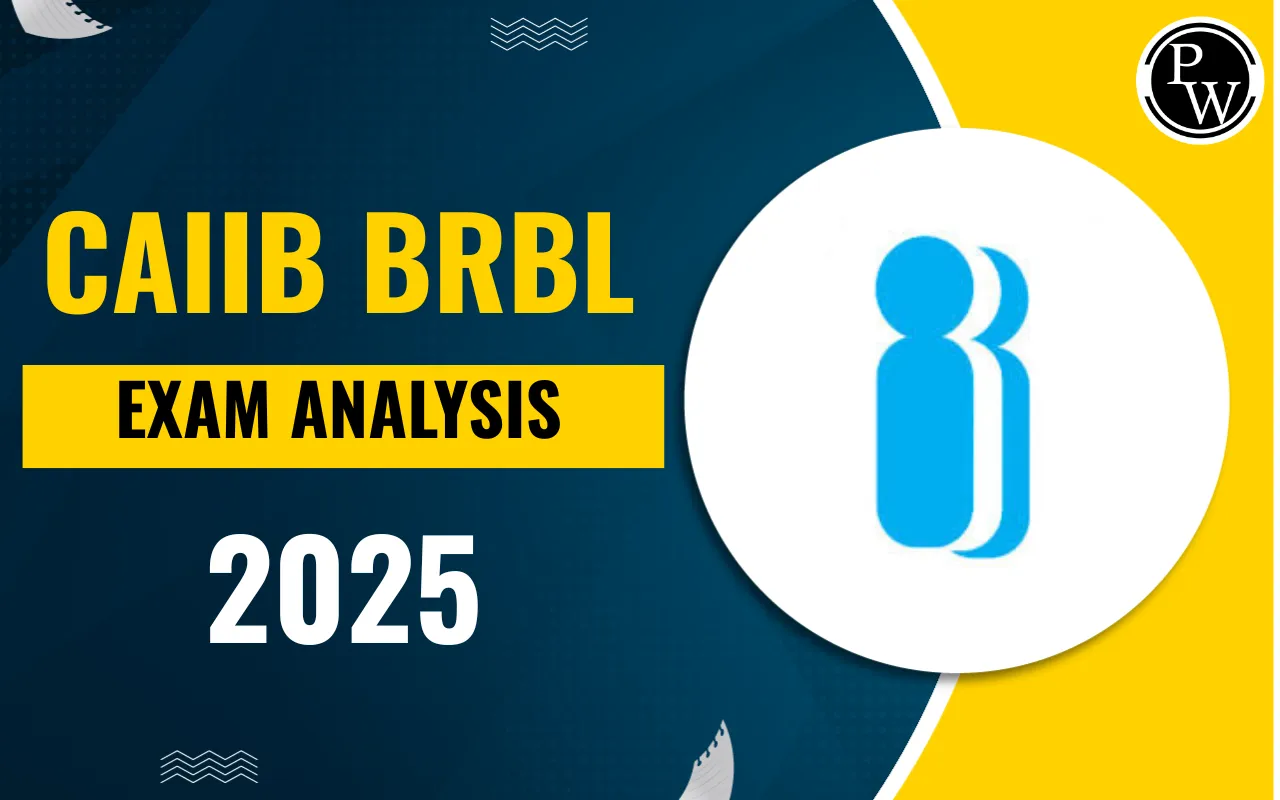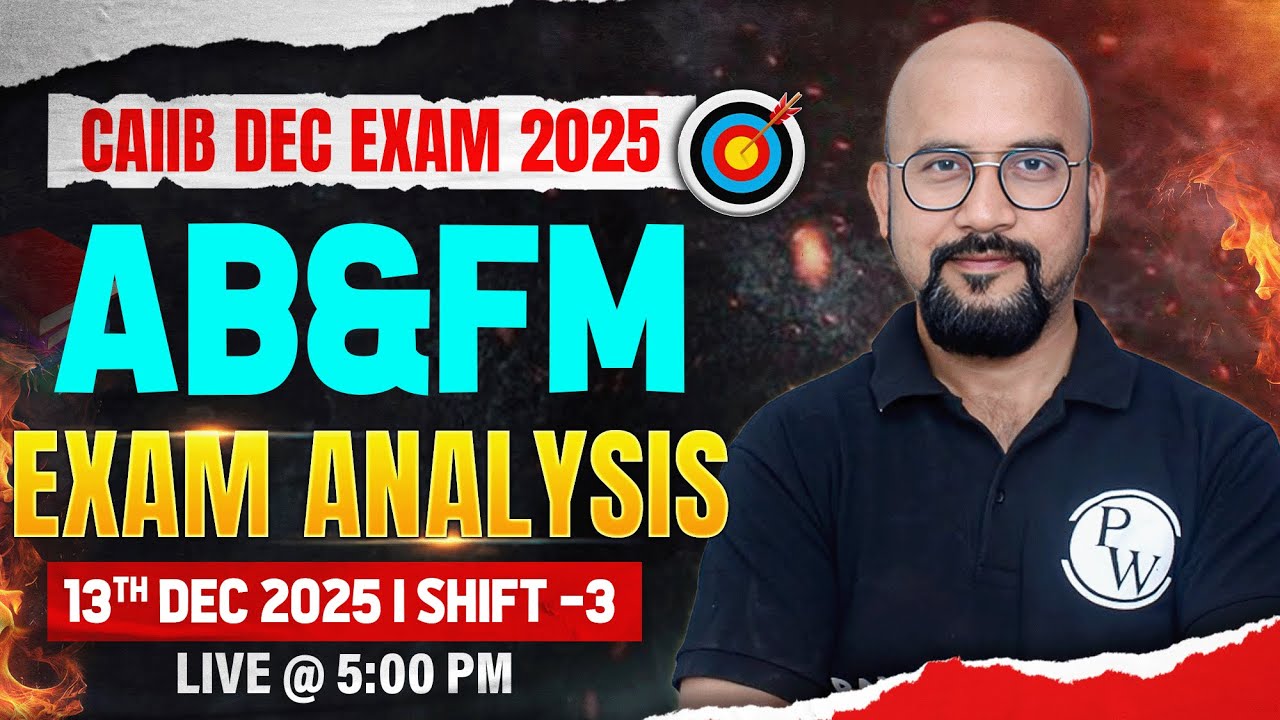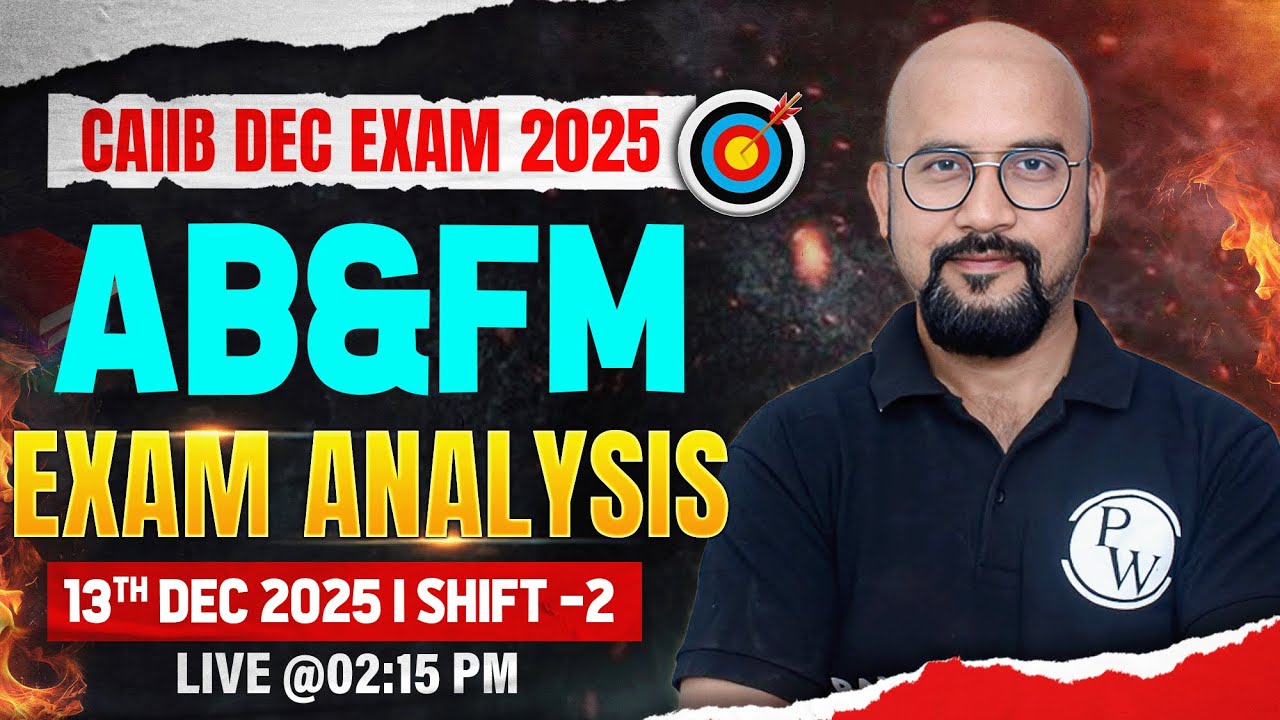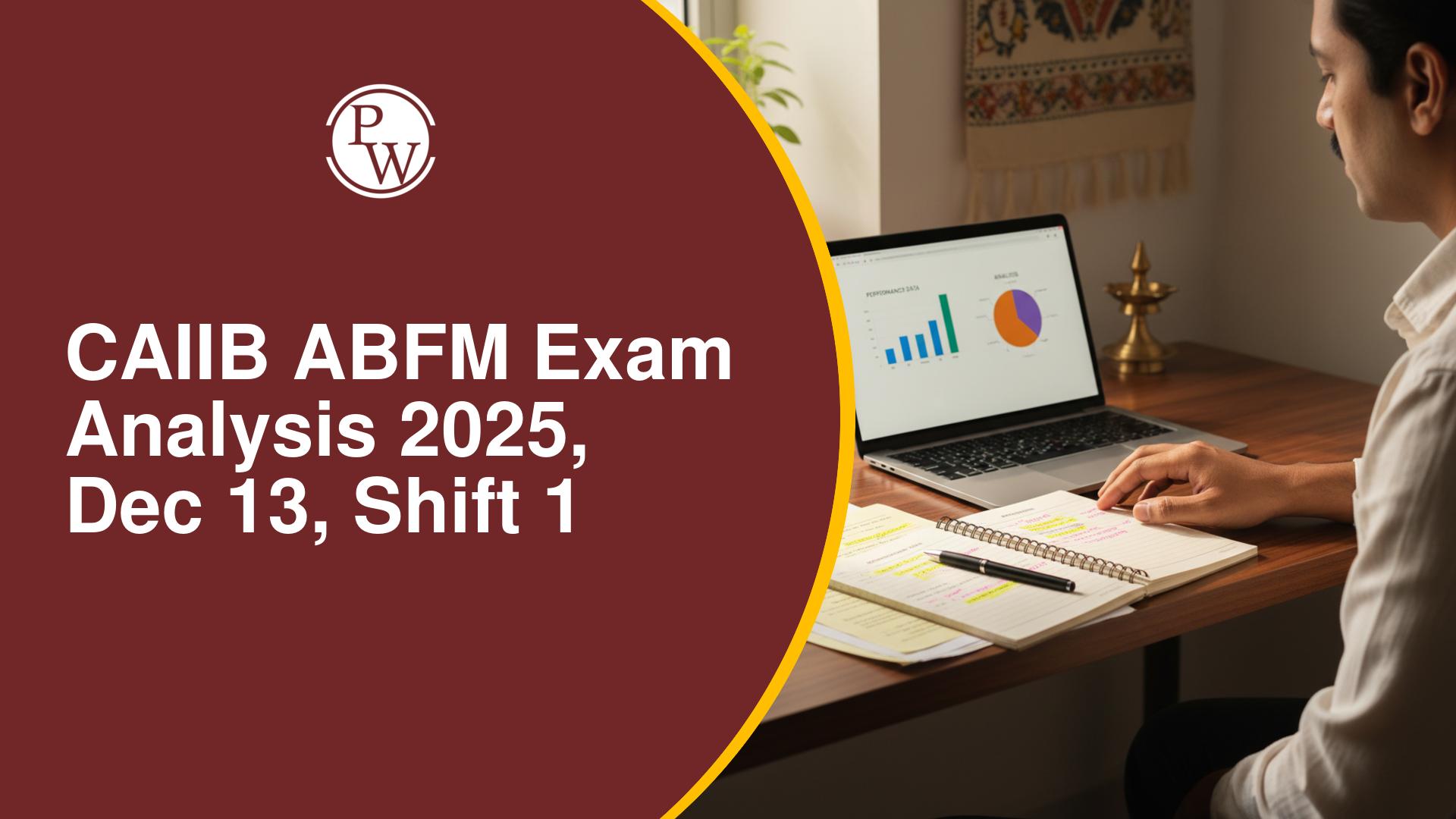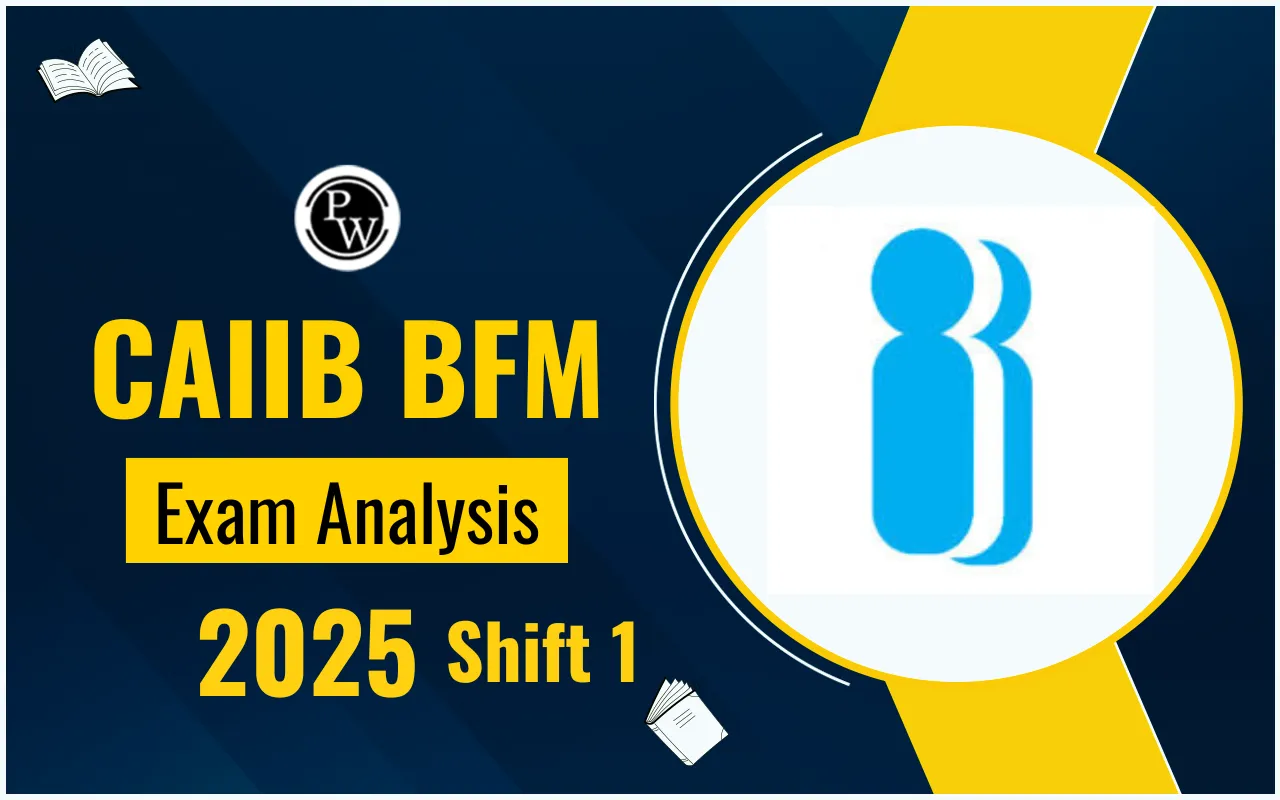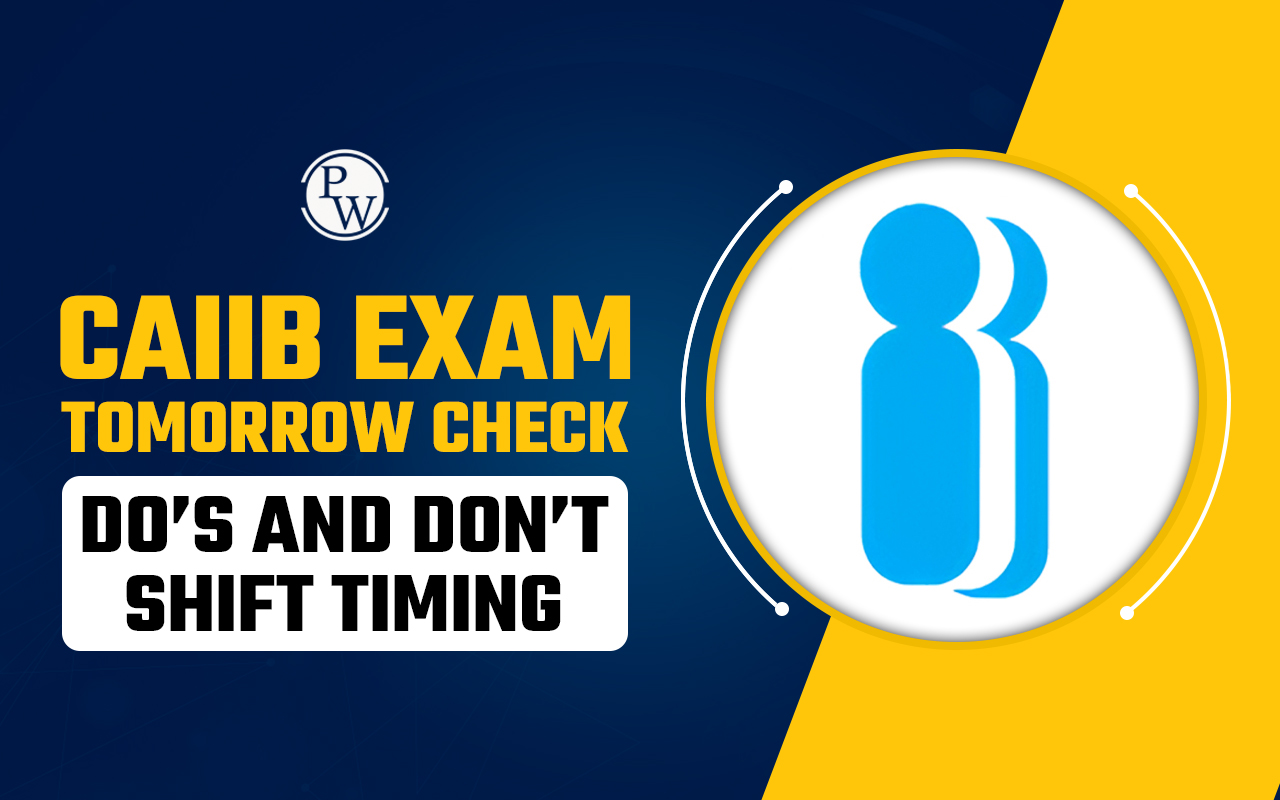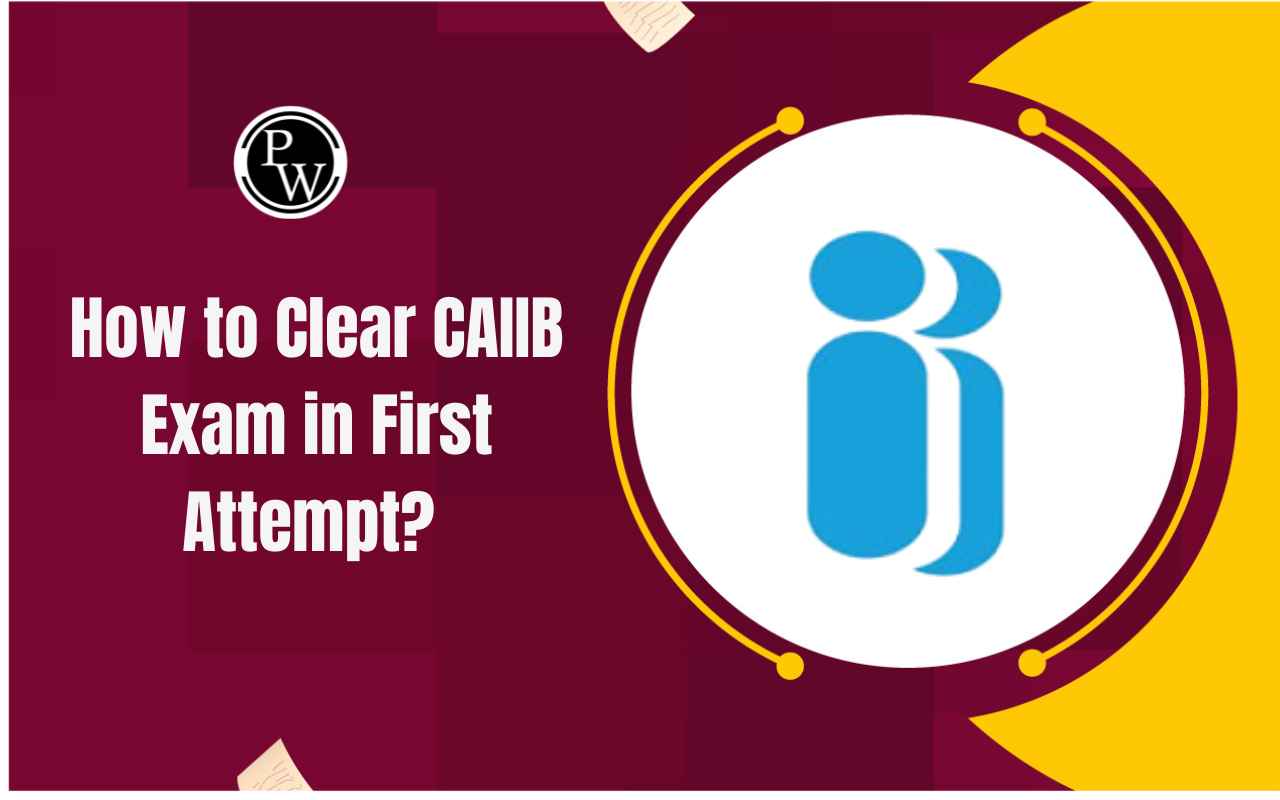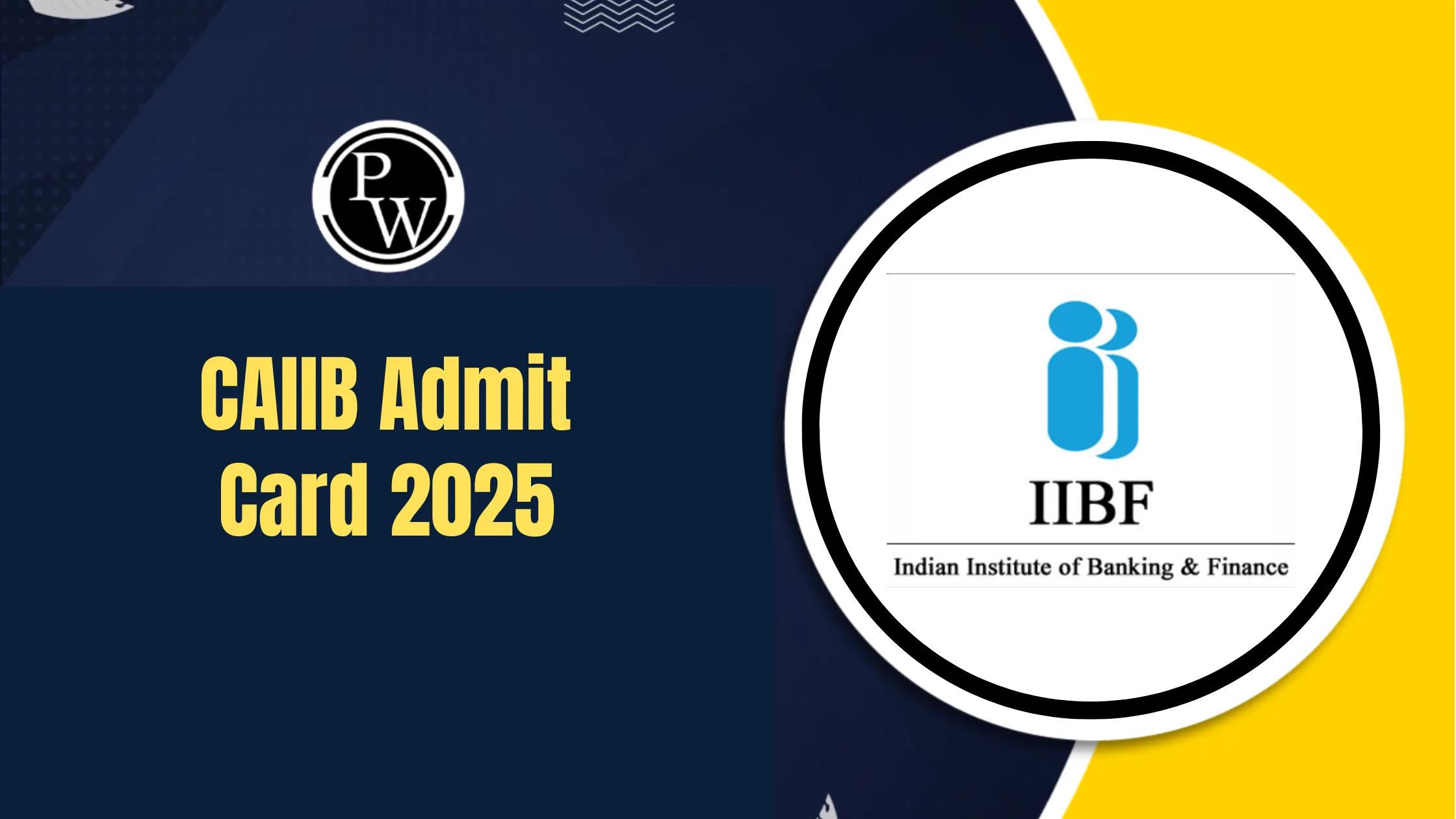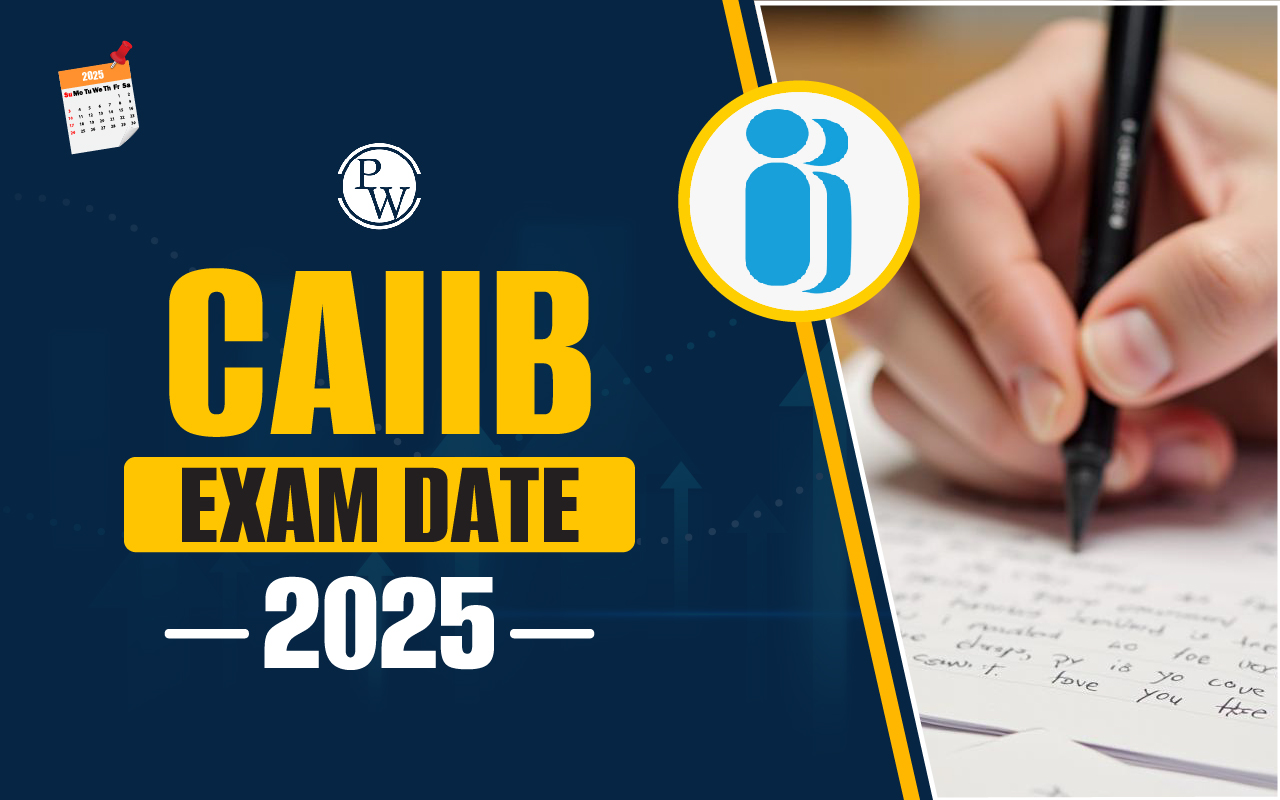
CAIIB ABM Syllabus 2025: The Certified Associate of Indian Institute of Bankers (CAIIB) ABM Syllabus & Exam Pattern is made officially by the Indian Institute of Banking and Finance (IIBF). The CAIIB Exam is administered by IIBF twice a year, or biannually. The goal of the CAIIB Examination is to give applicants additional knowledge in areas such as credit management, international banking, balance sheet management, risk management, treasury management, economic analysis, etc. that will help them make better decisions. Please bookmark this blog and have a look at the updated CAIIB ABM Syllabus 2025.
CAIIB ABM Syllabus 2025
The Indian Institute of Banking and Finance administers the CAIIB Examination, which candidates who have already passed the JAIIB Examination can take to advance in their careers. Bankers who pass the CAIIB Examination are eligible for further promotions at all levels. CAIIB exam consists of five papers, of which four papers are compulsory and one paper is elective. In this article we are going to discuss the detailed CAIIB ABM Syllabus 2025 & Exam Pattern for the Advance Business & Financial Management Paper which consists of 100 questions of 1 marks each.CAIIB Advance Business & Financial Management Syllabus
As per the introduction of the updated CAIIB Syllabus, the number of compulsory subjects has been increased to four. The two newly added papers apart from Advanced Bank Management (ABM) and Bank Financial Management(BFM) in this revised syllabus are Advanced Business and Financial Management (ABFM) and Banking Regulations and Business Laws (BRBL). We have tabulated below the details of the CAIIB Advance Business & Management Syllabus here.| CAIIB ABM Syllabus 2025 Highlights | |
|---|---|
| Conducting Body | Indian Institute of Banking and Finance |
| Exam Name | CAIIB 2025 |
| Category | Syllabus |
| Exam Level | National Level |
| Mode of Exam | Online |
| CAIIB Exam Date 2025 | To be Notified |
| Mode of Exam | Online |
| Types of Questions | Multiple Choice Type |
| Number of Papers In CAIIB Exam | 5 Papers |
| No. of Questions | 100 each paper |
| Official Website | www.iibf.org.in |
CAIIB ABM Syllabus
The table below provides a detailed CAIIB syllabus of all four modules of Paper 1, i.e. Advanced Bank Management:| CAIIB Syllabus 2025 Paper 1: Advanced Bank Management | |
|---|---|
| Module | Topics |
| MODULE A: STATISTICS | - Definition of Statistics |
| - Importance & Limitations | |
| - Data Collection, Classification & Tabulation | |
| - Importance of Statistics | |
| - Functions of Statistics | |
| - Limitation or Demerits of Statistics | |
| - Definitions | |
| - Collection of Data | |
| - Classification and Tabulation | |
| - Frequency Distribution | |
| - Sampling Techniques | |
| - Random Sampling | |
| - Sampling Distributions | |
| - Sampling from Normal Populations | |
| - Sampling from Non-Normal Populations | |
| - Central Limit Theorem | |
| - Finite Population Multiplier | |
| - Measures of Central Tendency & Dispersion, Skewness, Kurtosis | |
| - Arithmetic Mean | |
| - Combined Arithmetic Mean | |
| - Geometric Mean | |
| - Harmonic Mean | |
| - Median and Quartiles | |
| - Mode | |
| - Introduction to Measures of Dispersion | |
| - Range and Coefficient of Range | |
| - Quartile Deviation and Coefficient of Quartile Deviation | |
| - Standard Deviation and Coefficient of Variation | |
| - Skewness and Kurtosis | |
| - Correlation and Regression | |
| - Scatter Diagrams | |
| - Correlation | |
| - Regression | |
| - Standard Error of Estimate | |
| - Time Series | |
| - Variations in Time Series | |
| - Trend Analysis | |
| - Cyclical Variation | |
| - Seasonal Variation | |
| - Irregular Variation | |
| - Forecasting Techniques | |
| - Theory of Probability | |
| - Mathematical Definition of Probability | |
| - Conditional Probability | |
| - Random Variable | |
| - Probability Distribution of Random Variable | |
| - Expectation and Standard Deviation | |
| - Binomial Distribution | |
| - Poisson Distribution | |
| - Normal Distribution | |
| - Credit Risk | |
| - Value at Risk | |
| - Option Valuation | |
| - Estimation | |
| - Estimates | |
| - Estimator and Estimates | |
| - Point Estimates | |
| - Interval Estimates | |
| - Interval Estimates and Confidence Intervals | |
| - Interval Estimates of the Mean from Large Samples | |
| - Interval Estimates of the Proportion from Large Samples | |
| - Linear Programming | |
| - Graphic Approach | |
| - Simplex Method | |
| - Simulation | |
| - Simulation Exercise | |
| - Simulation Methodology | |
| MODULE B: HUMAN RESOURCE MANAGEMENT | - Fundamentals of Human Resource Management |
| - The Perspective | |
| - Relationship between HRM & HRD and their Structure and Functions | |
| - Role of HR Professionals | |
| - Strategic HRM | |
| - Development of HR Functions in India | |
| - Development of Human Resources | |
| - HRD and its Subsystems | |
| - Learning and Development – Role and Impact of Learning | |
| - Attitude Development | |
| - Career Path Planning | |
| - Self-Development | |
| - Talent Management | |
| - Succession Planning | |
| - Human Implications of Organizations | |
| - Human Behaviour and Individual Differences | |
| - Employee behavior at Work | |
| - Diversity at Workplace and Gender Issues | |
| - Theories of Motivation and their Practical Implications | |
| - 'Role': Its Concept & Analysis | |
| - Employees’ Feedback and Reward System | |
| - Employees’ Feedback | |
| - Reward and Compensation System | |
| - Performance Management | |
| - Appraisal Systems | |
| - Performance Review and Feedback | |
| - Counselling | |
| - Competency Mapping and Assessment of Competencies | |
| - Assessment Centres | |
| - Behavioural Event Interview (BEI) | |
| - Conflict Management and Negotiation | |
| - Conflict: Concept & Definition | |
| - Characteristics of Conflict | |
| - Types of Conflicts | |
| - Reasons for Conflict | |
| - Different Phases of Conflict | |
| - Conflict Resolution | |
| - Conflict Management | |
| - Negotiation Skills for Resolution of Conflicts | |
| - HRM and Information Technology | |
| - Role of Information Technology in HRM | |
| - HR Information and Database Management | |
| - Human Resource Information System (HRIS) | |
| - Human Resource Management System (HRMS) | |
| - e–HRM | |
| - HR Research | |
| - Knowledge Management | |
| - Technology in Training | |
| - HR Analytics | |
| MODULE C: CREDIT MANAGEMENT | - Overview of Credit Management |
| - Importance of Credit | |
| - Historical Background of Credit in India | |
| - Principles of Credit | |
| - Types of Borrowers | |
| - Types of Credit | |
| - Components of Credit Management | |
| - Role of RBI Guidelines in Bank’s Credit Management | |
| - Analysis of Financial Statements | |
| - Which are the Financial Statements | |
| - Users of Financial Statements | |
| - Basic Concepts Used in Preparation of Financial Statements | |
| - Accounting Standards (AS) | |
| - Legal Position Regarding Financial Statements | |
| - Balance Sheet | |
| - Profit and Loss Account | |
| - Cash Flow Statement | |
| - Funds Flow Statement | |
| - Projected Financial Statements | |
| - Purpose of Analysis of Financial Statements by Bankers | |
| - Rearranging the Financial Statements for Analysis | |
| - Techniques used in Analysis of Financial Statements | |
| - Creative Accounting | |
| - Related Party Transactions | |
| - Working Capital Finance | |
| - Concept of Working Capital | |
| - Working Capital Cycle | |
| - Importance of Liquidity Ratios | |
| - Methods of Assessment of Bank Finance | |
| - Working Capital Finance to Information Technology and Software Industry | |
| - Bills/Receivables Finance by the Banks | |
| - Guidelines of RBI for Discounting/Rediscounting of Bills by Banks | |
| - Trade Receivables Discounting System (TReDS) | |
| - Non-Fund Based Working Capital Limits | |
| - Other Issues Related to Working Capital Finance | |
| - Term Loans | |
| - Important Points about Term Loans | |
| - Deferred Payment Guarantees (DPGs) | |
| - Difference between Term Loan Appraisal and Project Appraisal | |
| - Project Appraisal | |
| - Appraisal and Financing of Infrastructure Projects | |
| - Credit Delivery and Straight Through Processing | |
| - Documentation | |
| - Third-Party Guarantees | |
| - Charge over Securities | |
| - Possession of Security | |
| - Disbursal of Loans | |
| - Lending under Consortium/Multiple Banking Arrangements | |
| - Syndication of Loans | |
| - Straight-Through Loan Processing or Credit Underwriting Engines | |
| - Credit Control and Monitoring | |
| - Importance and Purpose | |
| - Available Tools for Credit Monitoring/Loan Review Mechanism (LRM) | |
| - Risk Management and Credit Rating | |
| - Meaning of Credit Risk | |
| - Factors Affecting Credit Risk | |
| - Steps Taken to Mitigate Credit Risks | |
| - Credit Ratings | |
| - Internal and External Ratings | |
| - Methodology of Credit Rating | |
| - Use of Credit Derivatives for Risk Management | |
| - RBI guidelines on Credit Risk Management | |
| - Credit Information System | |
| - Restructuring/Rehabilitation and Recovery | |
| - Credit Default/Stressed Assets/NPAs | |
| - Wilful Defaulters | |
| - Non-cooperative borrowers | |
| - Options Available to Banks for Stressed Assets | |
| - RBI Guidelines on Restructuring of Advances by Banks | |
| - Available Frameworks for Restructuring of Assets | |
| - Sale of Financial Assets | |
| - Resolution of Stressed Assets under Insolvency and Bankruptcy Code 2016 | |
| - Definition of Insolvency and Bankruptcy | |
| - To Whom the Code is Applicable | |
| - Legal Elements of the Code | |
| - Paradigm Shift | |
| - Corporate Insolvency Resolution Process | |
| - Liquidation process | |
| - Pre-packed Insolvency Resolution Process for stressed MSMEs | |
| MODULE D: COMPLIANCE IN BANKS & CORPORATE GOVERNANCE | - Compliance Function in Banks |
| - Compliance Policy | |
| - Compliance Principles, Process and Procedures | |
| - Compliance Programme | |
| - Scope of Compliance Function | |
| - Role & Responsibilities of Chief Compliance Officer (CCO) | |
| - Compliance Audit | |
| - Role of Risk-Based Internal Audit and Inspection | |
| - Reporting Framework and Monitoring Compliance | |
| - Disclosure Requirements | |
| - Accounting Standards | |
| - Disclosures under Listing Regulations of SEBI | |
| - Compliance Governance Structure | |
| - Organisational Structure | |
| - Responsibility of the Board and Senior Management | |
| - Compliance Structure at the Corporate Office | |
| - Functional Departments | |
| - Compliance Structure at Field Levels | |
| - Internal Controls and its Importance | |
| - Framework for Identification of Compliance Issues and Compliance Risks | |
| - Compliance Issues | |
| - Compliance Risk | |
| - Inherent Risk and Control Risk | |
| - Independent Testing and Effective Audit Programme | |
| - Reporting Framework and Monitoring Compliance | |
| - Role of Inspection and Audit | |
| - Loan Review Mechanism/Credit Audit | |
| - What is Good Compliance | |
| - Compliance Culture and GRC Framework | |
| - How to Create Compliance Culture Across the Organisation | |
| - Governance, Risk and Compliance – GRC Framework | |
| - Benefits of an Integrated GRC Approach | |
| - Whistle-blower Policy | |
| - The Components of a Whistle-blower Policy | |
| - Reasons for Compliance Failures | |
| - Compliance Function and Role of Chief Compliance Officer in NBFCs | |
| - Framework for Scale Based Regulation for Non-Banking Financial Companies | |
| - Transition Path | |
| - Framework for Compliance Function and Role of Chief Compliance Officer in NBFC-UL & NBFC-ML | |
| - Fraud and Vigilance in Banks | |
| - Definition of Fraud | |
| - Definition of Forgery | |
| - Areas in which Frauds are committed in Banks | |
| - Banking and Cyber Frauds | |
| - Fraud Reporting and Monitoring System | |
| - Vigilance Function in Banks | |
| - RBI Guidelines for Private Sector and Foreign | |
CAIIB 2025 Marking Scheme
- To successfully clear each subject of the CAIIB exam, candidates must secure a minimum score of 50 marks out of the total 100 marks allotted.
- Alternatively, candidates who manage to obtain a minimum of 45 marks in every subject and an overall aggregate of at least 50% in a single attempt will also be considered as having qualified for the examination.
- The credits obtained for the subjects in which candidates have achieved passing marks will remain valid until the specified time limit expires for completing the entire examination process.
CAIIB ABM Exam Pattern 2025
The CAIIB Exam 2025 will include four mandatory papers and one elective paper. The compulsory papers are Advanced Bank Management (ABM), Bank Financial Management (BFM), Advanced Business and Financial Management (ABFM), and Banking Regulations and Business Laws (BRBL). Each of these papers is further divided into different modules, and candidates must cover each module to qualify for the CAIIB Exam 2025. During the registration process, candidates need to select their preferred language for the exam, which can be either Hindi or English. The CAIIB ABM Exam 2025 will be conducted online, with each paper consisting of 100 questions, each carrying 100 marks. Candidates will have a time limit of 2 hours to complete each paper.| CAIIB ABM Exam Pattern 2025 | |||
| Papers | No. of Questions | Total Marks | Duration |
| Advanced Bank Management | 100 | 100 | 2 Hours |
| Bank Financial Management | 100 | 100 | 2 Hours |
| Advanced Business and Financial Management | 100 | 100 | 2 Hours |
| Banking Regulations and Business Laws | 100 | 100 | 2 Hours |
| Elective Paper | 100 | 100 | 2 Hours |
CAIIB ABM Syllabus 2025 FAQs
Q1. Where can i get the CAIIB RBWM Syllabus 2025?
Ans. You can get the detailed and accurate CAIIB RBWM Syllabus 2025 at the PW platform.
Q2. What's the marking scheme as per the CAIIB ABM Syllabus 2025?
Ans. Correct answers earn one mark each. However, there is negative marking – 25% of the allotted marks for a question will be deducted for incorrect answers. Candidates need to score a minimum of 50 marks out of 100 in each paper to pass that paper.
Q3. Is there a negative marking in the CAIIB ABM exam?
Ans. No, there is no negative marking in the CAIIB ABM exam.
Q4. Which organisation conducts the CAIIB ABM Exam?
Ans. Indian Institute of Banking and Finance conducts the CAIIB ABM Exam twice a year.
🔥 Trending Blogs
Talk to a counsellorHave doubts? Our support team will be happy to assist you!

Check out these Related Articles
Free Learning Resources
PW Books
Notes (Class 10-12)
PW Study Materials
Notes (Class 6-9)
Ncert Solutions
Govt Exams
Class 6th to 12th Online Courses
Govt Job Exams Courses
UPSC Coaching
Defence Exam Coaching
Gate Exam Coaching
Other Exams
Know about Physics Wallah
Physics Wallah is an Indian edtech platform that provides accessible & comprehensive learning experiences to students from Class 6th to postgraduate level. We also provide extensive NCERT solutions, sample paper, NEET, JEE Mains, BITSAT previous year papers & more such resources to students. Physics Wallah also caters to over 3.5 million registered students and over 78 lakh+ Youtube subscribers with 4.8 rating on its app.
We Stand Out because
We provide students with intensive courses with India’s qualified & experienced faculties & mentors. PW strives to make the learning experience comprehensive and accessible for students of all sections of society. We believe in empowering every single student who couldn't dream of a good career in engineering and medical field earlier.
Our Key Focus Areas
Physics Wallah's main focus is to make the learning experience as economical as possible for all students. With our affordable courses like Lakshya, Udaan and Arjuna and many others, we have been able to provide a platform for lakhs of aspirants. From providing Chemistry, Maths, Physics formula to giving e-books of eminent authors like RD Sharma, RS Aggarwal and Lakhmir Singh, PW focuses on every single student's need for preparation.
What Makes Us Different
Physics Wallah strives to develop a comprehensive pedagogical structure for students, where they get a state-of-the-art learning experience with study material and resources. Apart from catering students preparing for JEE Mains and NEET, PW also provides study material for each state board like Uttar Pradesh, Bihar, and others
Copyright © 2026 Physicswallah Limited All rights reserved.
